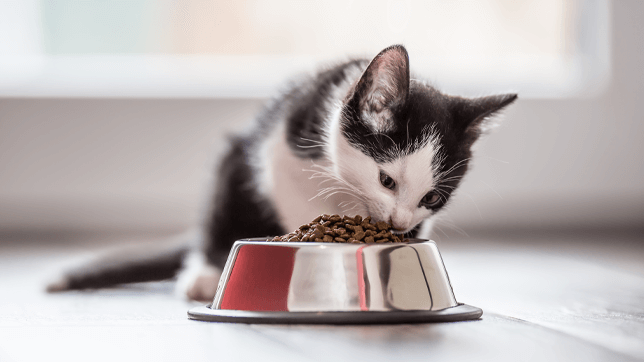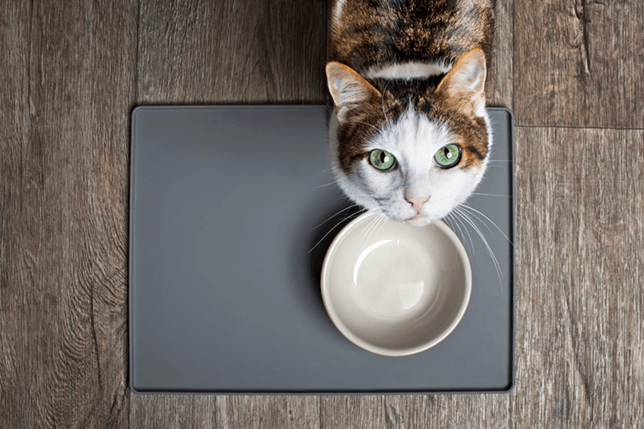15th March 2022
How autumn affects your cat’s appetite
Autumn, a season of change. The trees turn from green to yellow, the leaves eventually fall leaving branches bear, and we’re all trying to get used to the new chill in the air.
The days are mild, and the new season can have a variety of effects on us as humans. The same is true for our pets, and it can change their eating habits, just like it does for us.

Do cats eat more when it’s cold?
When the chill sets in, we might find ourselves comfort eating, and our meals are swapped from salads to stews to keep us warm. A 2014 study found that cats also eat more during the colder months and that they should be given more food during this time to keep up with the extra energy they need.
The study
A study entitled “Seasonal Variation in the Voluntary Food Intake of Domesticated Cats”, conducted by researchers from the University of Liverpool’s School of Veterinary Science and colleagues at the Royal Canin Research Centre in France, found that cats eat approximately 15% less food during the summer months.
The researchers spent four years monitoring how much 38 cats chose to eat, by using a food dispenser that only opened for the cat with the matching microchip on their collar. At the same time, this allowed them to record just how much the cat had eaten and when it had decided to visit the bowl.
Why do cats need more food in winter?
As the temperatures plummet over the autumn and winter months, your cat will use more energy to maintain its body temperature and will eat more food as fuel for the extra energy it needs. Then, when summer comes around again, their need for food and the energy it creates decreases as they tend to nap and lounge away the hotter days.

What about indoor cats?
An indoor cat might not be as active as their outdoor counterparts, but they still go through the same metabolic change. Experts think this is down to the decrease in the hours of daylight during the darker winter days that triggers the metabolic response in indoor cats.
What does this mean for your cat’s diet?
To meet your cat’s needs you should consider the amount of food your cat will eat at different times of the year to help them to maintain a healthy weight, but don’t make any drastic changes without speaking to your vet.
If you have an indoor cat and you’re concerned they might start to gain some extra weight, here are some exercises to help them burn any extra calories.

Looking for more cat advice?
We’ve written some handy cat advice guides, to help you unlock the secrets of your mysterious moggy.

Need cat insurance?
Cat insurance can help cover the cost of veterinary treatment if your cat gets injured or falls ill.
